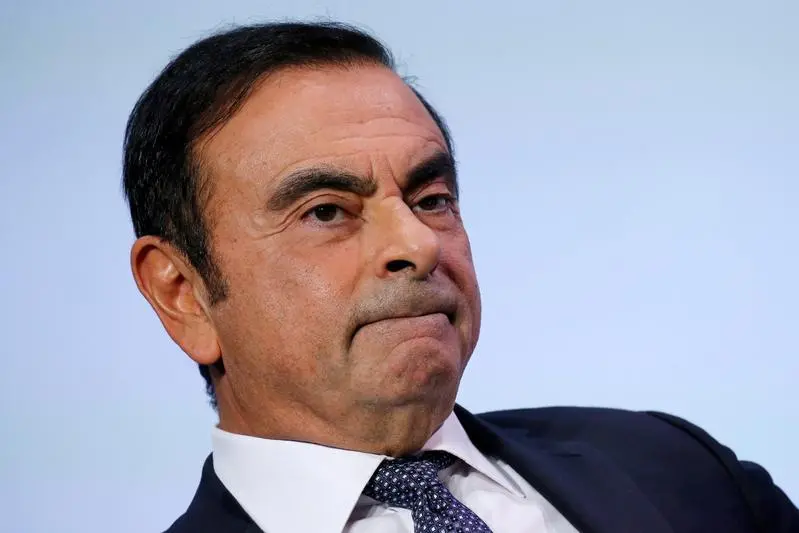PHOTO
LONDON - Conspiracy theories, government plots, prison escapes, billions of dollars of shareholder value up in smoke. If Netflix commissions a yarn based on the life of Carlos Ghosn they won’t lack for salacious material, judging by the ex-Renault boss’s eyebrow-raising press conference on Wednesday. Still, declining to substantiate conspiracy claims about his downfall is a missed opportunity to make headway in the court of public opinion.
In an animated gathering in Beirut on Wednesday Ghosn mostly sought to impugn the Japanese justice system which held him for an alleged 130 days in solitary confinement, interrogated him for up to eight hours day or night without a lawyer present, prohibited visits from his wife and restricted the wealthy ex-head of the world’s second biggest car conglomerate to just two showers a week. All that, he argued, justified his daring decision to skip his $9 million bail and escape in a private jet to Lebanon.
Maybe so. But having credibly argued that the Japanese were resentful about Renault’s outsized influence at Nissan Motor , he then declined to substantiate the all-important claims about the collaboration between government and company executives to plot his downfall. Ghosn justified not naming names by not wanting to damage Japan-Lebanon bilateral relations. But given Beirut is expected to ignore an Interpol warrant for his arrest, these probably weren’t looking that hot anyway.
What there was instead was over an hour of rambling rebuttals to Tokyo’s charges that Ghosn under-reported income and shovelled company funds to friends and family. Regardless of their merits, these were liberally sprinkled with foot-in-mouth moments which took in comparing the shock of his arrest to that experienced by the U.S. fleet at Pearl Harbor, and stressing that his style of leadership had been the subject of 20 books on management. He defended hosting a sybaritic party at French palace Versailles because it was “the symbol of the globalisation of France”.
The assembled hordes of international press showing up in Beirut were more interested in the James Bond antics via which Ghosn had fled Japan. They didn’t quite get what they wanted. But nor did anyone wanting to nail down whether the corporate titan’s case has legal merit.
CONTEXT NEWS
- Carlos Ghosn told reporters in Beirut on Jan. 8 he had been treated "brutally" by Tokyo prosecutors he accused of helping Nissan Motor to oust him as chairman.
- The former boss of French automaker Renault told a packed news conference in Beirut that he was not confident he would face a fair trial had he remained in Japan.
- “You are going to die in Japan or you are going to have to get out,” Ghosn said, describing his feelings. “I felt like the hostage of a country I served for 17 years,” he told reporters at Lebanon's press syndicate.
- The one-time titan of the auto industry fled Japan last month where he was awaiting trial on charges of under-reporting earnings, breach of trust and misappropriation of company funds, all of which he denies. Ghosn said he had fled to Lebanon to clear his name.
- "The charges against me are baseless," Ghosn added, repeating his allegation that Nissan and Japanese authorities colluded to oust him following a downturn in Nissan's fortunes and in revenge for French government interference in the carmaker's alliance with Renault.
- Renault shares were unchanged at 42.76 euros per share by 1515 GMT on Jan. 8.
(Editing by George Hay and Karen Kwok)
© Reuters News 2020





















